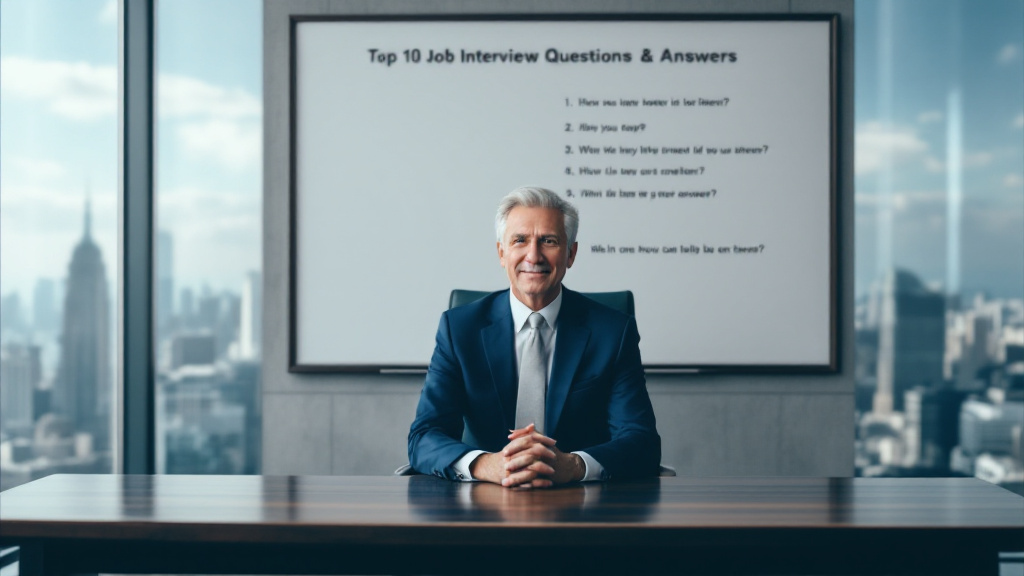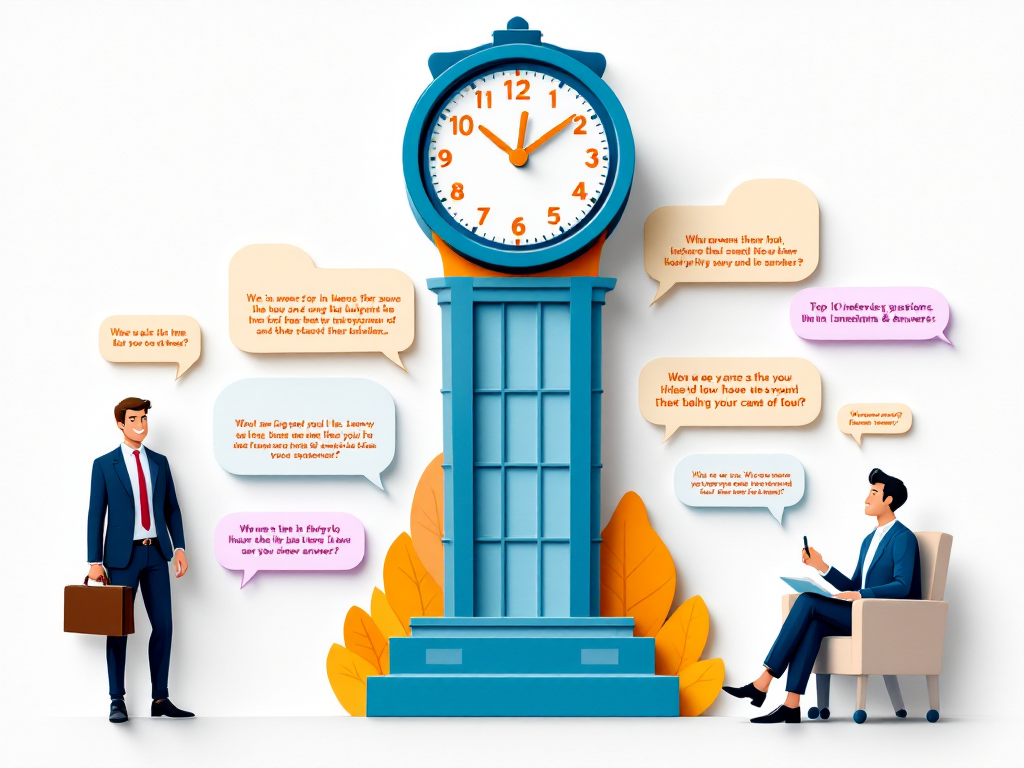
Top 10 Job Interview Questions & Answers
Job Interview Questions: Top 10 Questions with Answers
Introduction
You’re sitting in the middle of an interview, and the hiring manager suddenly pops this question: “What’s your greatest failure?” You freeze, not knowing how to react without coming off as unprepared. Sound familiar? Stressful interviews can turn the most confident person into a nervous wreck for many candidates. Interviews are viewed as high-stakes environments where each word counts and first impressions are crucial. Well, lucky for you, this article is here to be your compass when sailing these treacherous waters. Knowing the frequent questions and learning even better the best solution will help you go into your next interview with confidence.
Breaking down the interview problem
The Stakes in Interviews Are High
Interviews form a crucial part of the hiring process. They are the bridge between a resume and an offer where you have an opportunity to showcase you are right candidate for the role. It’s a high stakes game: one misstep or awkward pause can kill your chances. Interviews are for employers to learn about your skills, but also your personality, culture fit and how you can grow within the company. That is why preparation is not an option.
Interview Mistakes You Commonly Make
Many candidates are like so many fishes caught in a common interview net. These range from oversharing personal information to underselling skills or not properly researching the company. The pressure to respond with a positive impression can create anxiety, resulting in responses that are either rushed or poorly considered. Knowing these pitfalls is the first step in avoiding them.
Top 10 Interview Questions
- Tell Me About Yourself This question determines the tone for the interview. They want to know how you present yourself and what you highlight.
- What Are Your Strengths? : Seeks to learn about what you bring to the table.
- What Are Your Weaknesses? : Your self-awareness and honesty are being tested.
- Why You, Not Someone Else?
- : Gives you the ability to sell your unique value proposition.
- Tell me About a Time You Overcame a Challenge: Evaluates problem-solving abilities and resilience.
- Where do you see yourself in five years? : Tests your career planning and ambition.
- Why Work Here?
- : Measures your interest and what you know about the company.
- Tell Me About a Time You Failed: Assesses how you deal with setbacks.
- How Do You Deal With Stress? : Examines your coping mechanisms and emotional intelligence.
- Do You Have Any Questions for Us? : Demonstrates interest and curiosity in the role.
Tips on How to Answer Different Types of Questions
Editing Your Personal Narrative
For questions such as “Tell Me About Yourself,” structure your answer in a way that tells a story.
Begin with your background, follow with your professional accomplishments, and end with why you’re excited about this position. This way you are answer is breve and complete at the same time.
Tip: Adjust your story to emphasize experiences related to the job.
Showcasing Relevant Skill Sets
When asked about strengths, emphasize skills specifically relevant to the position.
Apply the STAR method (Situation, Task, Action, Result) in providing specific examples that show these strengths in action. It acts as proof of what you can present.
Presenting Weaknesses as Strengths
Being able to admit a weakness is terrifying. Pick a genuine weakness but one that you are working hard to fix. If you say something like, “I am a perfectionist, which can cause me to take more time on tasks. “But I have tried to manage my workload better moving forward to become more efficient.”
How Career Goals Align with the Company
If you get questions about your future, align your career goals with that of the company’s mission and growth trajectory. It also demonstrates ambition and a recent interest in being a long-term contributor to the organization.
Show Problem-Solving Skills
When describing challenges or failures, focus on the lessons learned from the experience and how that has prepared you to better navigate similar situations going forward. This means you have resilience and a growth mindset.
Showing Cultural Fit
Questions such as “Why Do You Want to Work Here?” require thorough research. Refer to aspects of the company culture, projects, or values that speak to you, demonstrating that you’ve done your research and are sincerely interested.
6. Common Mistakes and How to Avoid Them
One common mistake is to answer in too generic a way. Stand out by personalizing your responses. The other big mistake is failing to prepare questions for the interviewer, which can give the impression of a lack of interest. To sidestep those pitfalls, do mock interviews and refine your responses based on what you hear.
In order to go through it you have to play it smart. The more you practice, the more confident you will find yourself.
Strategies in Various Scenarios
Examples Relevant to the Industry
Every industry has its own skillsets that it prioritizes. A tech company might prioritize innovation, for example, or a nonprofit might focus on compassion and dedication to a cause. Be sure to stick to industry-specific skill sets and examples.
Ways to Approach Based on Your Role
What you can say and how you say it is also determined by the role you’re applying for. A managerial position might need instances of leadership and decision-making, while an entry-level job might focus on willingness to learn and flexibility.
Conclusion
To summarize, success in job interview questions comes from knowing what each question is getting at and being ready with meaningful responses that best showcase your strengths and fit for the position. Keep in mind, interviews are just as much about demonstrating you can do the work as they are showing who you are as an individual.
The next time you sit for an interview, remember to: write a story, tell it with lots of examples of your many strengths and successes, put a positive spin on things you didn’t do as well, and show how you’re looking for a job that aligns your career goals with the company. In general with practice and preparation, you’ll be ready to approach even the hardest of questions.

Take your next interview with confidence and curiosity. You've got this!